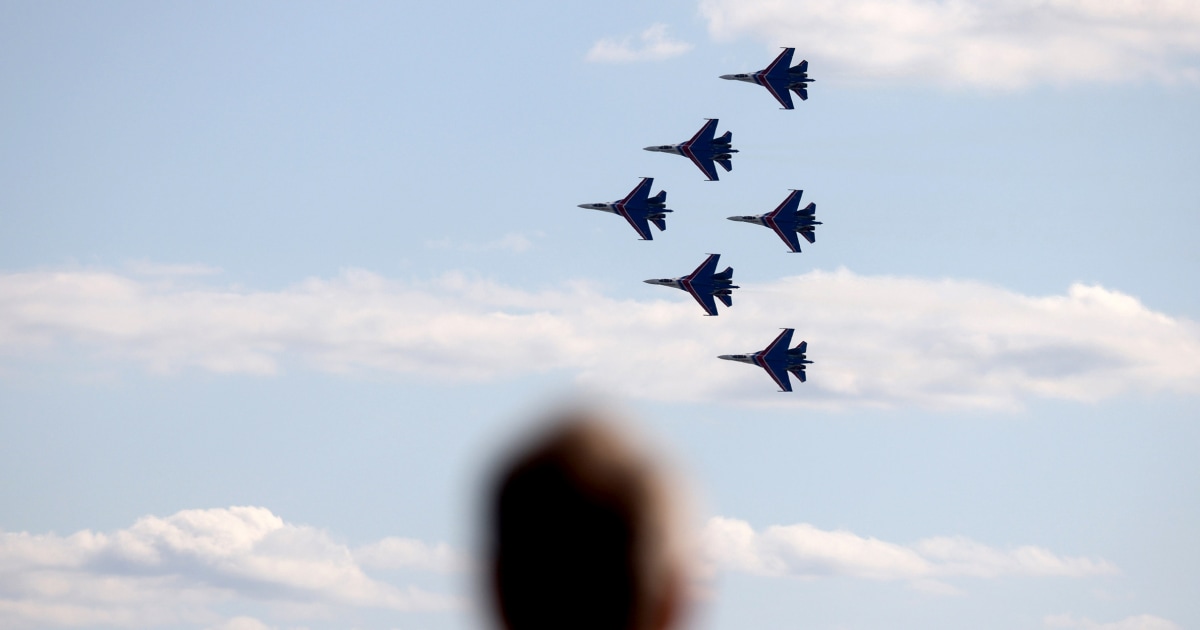
DUBAI, United Arab Emirates — Russia does not have a history of giving its aircraft catchy names. NATO typically does that for it, with code words like Flanker, Bear and Foxtrot.
That has changed with Moscow’s newest stealth fighter jet. For the first time, Russia has christened its aircraft before the U.S. and its allies could: Checkmate.
As far as names go, it isn’t subtle. As it suggests, Russian arms manufacturers are making bold claims about the aircraft’s capabilities.
“In terms of technical characteristics, you can really only compare our airplane with the [U.S.] F-35,” Sergei Chemezov, an old KGB colleague of Russian President Vladimir Putin’s and now the CEO of Russia’s largest defense-industrial holding company, Rostec, said this month at the Dubai Airshow.
Chemezov said Checkmate was chosen because Russia realized that branding is an important part of winning over customers in the high-stakes international arms trade. And the name is yet another sign that Russia — the world’s second-largest arms exporter, behind the U.S. — is targeting traditional clients and allies of its old rival.
An F-35 costs around $80 million, and while Checkmate’s pricing has not yet been announced, estimates flying around the Russian media suggest it will cost $30 million per plane in its base configuration. But that is just one part of a larger financial picture that is likely to include delays and cost overruns, with test flights not scheduled to begin until as early as 2023.
Then comes the issue of production, maintenance and upkeep — which make the cutting-edge U.S. stealth jets so expensive compared to older airplanes.
The Russian military has already committed to Checkmate’s bigger, older brother, the Su-57. But it has yet to procure the jet in any meaningful quantities. And it has not shown strong interest in the new model, either. That means Rostec is likely to need a big foreign buyer to get Checkmate flying.
“They need an external sponsor,” said Rob Lee, an analyst and doctoral student specializing in Russia’s military and defense industry at King’s College London. “One of the issues for a lot of the new weapons systems that Russia develops is they need to find a foreign sponsor who can pay for the R&D, and then the Russian military will procure it domestically.”
The Russian military does not, strictly speaking, need a fighter jet like Checkmate, Lee said. That is where the power politics of Russia’s domestic elite come into play.
“Chemezov is extremely powerful. Obviously, he is very close to Putin, so if there’s a fight between Chemezov and Shoigu, Chemezov would likely win,” Lee said, referring to Russian Defense Minister Sergei Shoigu.
Nonetheless, from the moment it was unveiled in July, Checkmate has been intentionally pitched for export to Turkey, India, Saudi Arabia and other countries that have either been shut out of the U.S. F-35 program or do not want to spend that much on a jet.
“Everyone is looking to buy something that is not too expensive but does not fall short of more expensive things from the Americans,” Chemezov said.
As a core business strategy, the model has served Russia well in recent years.
A report issued last month by the Congressional Research Service said one of the key reasons a potential customer might look to Moscow is that “Russian weaponry may be less expensive and easier to operate and maintain relative to Western systems.”
When he was asked about recent Russian efforts to target traditional U.S. allies and customers with the model, Chemezov said in English, “Business!”
But it is also more than that.
The arms industry is inherently political, and Russia, like the U.S., closely coordinates its arms exports with its foreign policy. About 80 percent of the country’s arms industry is under the umbrella of state-owned Rostec. Chemezov, its CEO, is an old friend of Putin’s. They have known each other since they served in the KGB in the 1980s.
“Arms sales are a central element of Russia’s foreign policy and are closely controlled by the government to advance economic and strategic objectives,” the Congressional Research Service report said. “Russian arms sales … promote Russia’s defense and political relations with other countries.”
In recent years, Russia has sold arms to Egypt — traditionally a U.S. customer — and it is targeting clients in the Middle East that buy billions of dollars of U.S. equipment, such as Saudi Arabia and the United Arab Emirates. Russia still has work to do on that front, but it has already shown that it can persuade even NATO allies, such as Turkey, to buy Russian.
At the Dubai Airshow, Rostec went all out presenting Checkmate to potential buyers. It erected a large branded pavilion and presented the jet with an elaborate light and laser show. Watching the presentation, it would be easy to imagine you were watching the unveiling of a flashy sports car — rather than a stealth warplane.
An explanation for the pageantry: The UAE, the host of the air show, is in the market for stealth fighter jets, and the F-35 is at the top of its shopping list.
But it is not clear that Moscow can lure the UAE to Checkmate. The Biden administration’s top arms sales official, Mira Resnick, told reporters at the air show that Gulf states are not looking to buy Russian.
“The F-35 is already in this region,” Resnick told The Associated Press, pointing to Israel’s use of the jet. “We would like the UAE to be able to operate the F-35 in a way that [it] can be our security partners and deter threats, including from Iran.”
But Russia does have an opening.
During the Trump administration, the U.S. and the UAE agreed to a $23 billion arms deal that included 50 F-35s, but the sale has slowed once President Joe Biden took office because of concerns about the Gulf kingdom’s role in the Yemen conflict.
Russia has already demonstrated that it can leverage a rift in U.S. relationships in the region.
In 2017, despite intense pressure from Washington, Turkish President Recep Tayyip Erdoğan signed a $2.5 billion contract to buy Russia’s latest air defense missile system, the S-400. That prompted the Trump administration to impose sanctions on Turkey.
When he was asked whether it gave him pleasure to sell to a U.S. ally, Chemezov laughed.
“We also know how to sell and get a client interested,” he said. “Therefore, we think that we won in this case.”

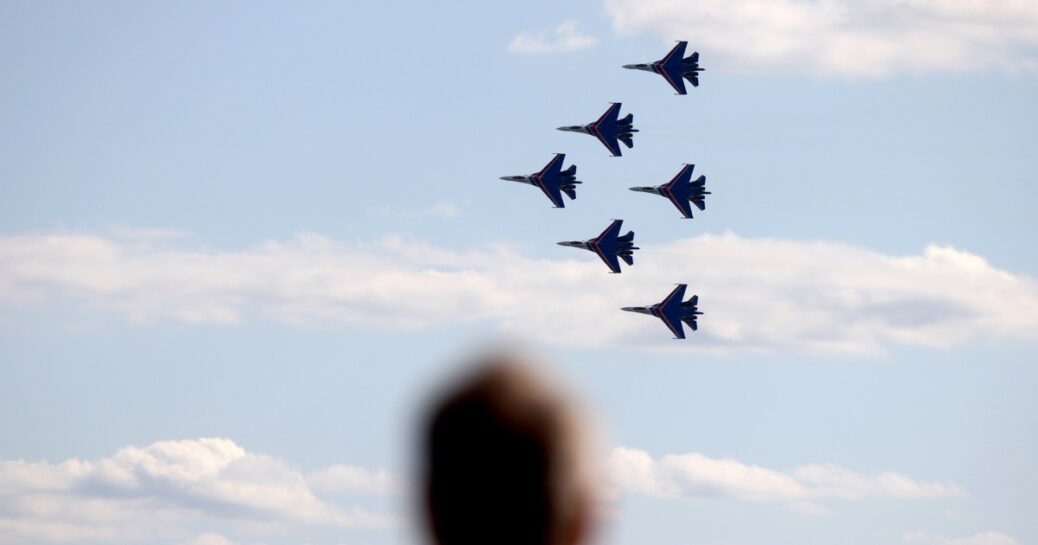

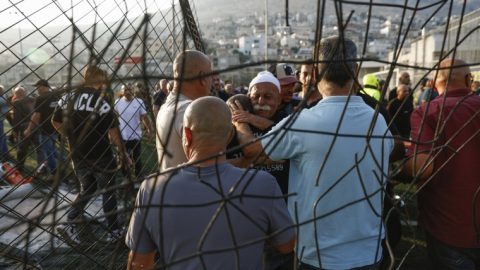

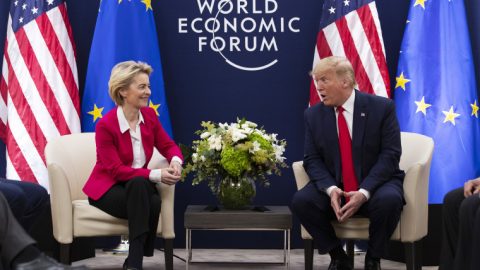


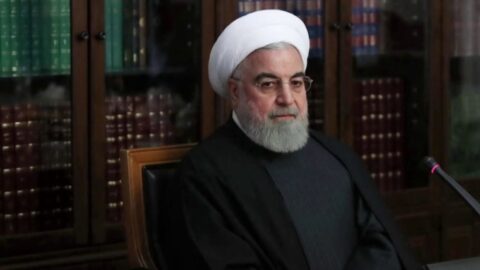
Recent Comments